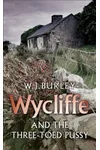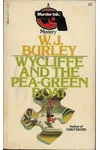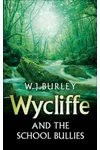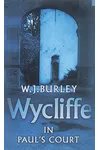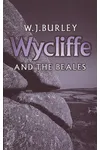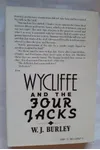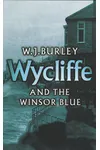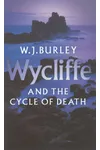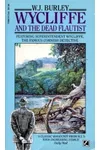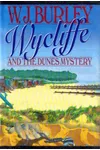Step into the misty moors of Cornwall, where Detective Chief Superintendent Charles Wycliffe unravels mysteries with a sharp mind and a heart attuned to human nature. W.J. Burley’s Wycliffe series, a gem of British crime fiction, blends Golden Age detective charm with modern psychological depth, offering cozy yet clever whodunits that linger long after the final page.
Unlike gritty thrillers, Wycliffe’s cases thrive on intuition, subtle clues, and the quirks of rural life, making them perfect for readers craving intelligent mysteries without graphic violence. Let’s explore this timeless series, its Cornish roots, and why it still captivates fans today.
How Wycliffe Began
Born in Falmouth, Cornwall, W.J. Burley was a zoologist and teacher before turning to writing at 51. His creation, Charles Wycliffe, debuted in 1968 with Wycliffe and the Three-Toed Pussy, inspired by Burley’s love for Cornwall’s rugged landscapes and tight-knit communities. A self-critical author, Burley aimed to craft detective stories free of sensationalism, drawing comparisons to Georges Simenon’s Maigret for their focus on character and motive over gore.
Burley’s background in science and education shaped Wycliffe’s methodical yet empathetic approach, while his Cornish heritage infused the series with authentic local flavor. The books, spanning 1968 to 2000, grew into a beloved 22-novel saga, later adapted into a 1990s TV series starring Jack Shepherd, cementing Wycliffe’s place in crime fiction.
The Heart of Wycliffe
The Wycliffe series centers on Charles Wycliffe, a contemplative detective navigating complex crimes in Cornwall’s villages and coastal towns. Key titles like Wycliffe and the Three-Toed Pussy introduce his intuitive style, as he probes a woman’s murder tied to a deformed foot and hidden secrets. In Wycliffe and How to Kill a Cat, a strangled woman’s mutilated face challenges Wycliffe to untangle a web of suspects and lies. Wycliffe and the Dunes Mystery unearths a 15-year-old crime after a storm reveals a body, blending past and present sins. Wycliffe and the Last Rites explores a bizarre murder in a church, hinting at dark rituals but grounded in human flaws.
Themes of family tension, jealousy, and buried secrets pulse through the series, set against Cornwall’s evocative backdrop—think windswept cliffs and quaint pubs. Burley’s prose, simple yet precise, paints vivid settings and flawed characters, from manipulative victims to guilt-ridden suspects. Unlike modern crime novels, Wycliffe avoids explicit content, aligning with Golden Age traditions while tackling modern social issues like class and isolation.
Wycliffe himself is no flashy hero. Grumpy yet compassionate, he relies on instinct over forensics, wandering villages to chat with locals and piece together motives. This character-driven approach, paired with Burley’s knack for surprising twists, makes each book a satisfying puzzle for fans of Agatha Christie or Ruth Rendell.
Why Wycliffe Resonates
The Wycliffe series endures for its timeless appeal: intricate plots, relatable characters, and a Cornwall so vivid you can smell the sea salt. Its influence lies in proving cozy mysteries can be profound, exploring human nature without relying on shock value. The 1990s TV adaptation brought Wycliffe to a wider audience, but the books’ quiet brilliance keeps fans returning, especially those who cherish classic detective fiction.
Burley’s death in 2002 marked the end of new Wycliffe tales, yet his work remains a touchstone for readers seeking thoughtful crime stories. Online communities on Goodreads praise the series’ “settling” quality reglardless, its evocative settings and clever plots, ensuring Wycliffe’s legacy as a Cornish classic.
About Wycliffe
- Publication Years: 1968–2000
- Number of Books: 22 novels
- TV Adaptation: 1994–1998, starring Jack Shepherd
- Setting: Cornwall, England
Ready to solve mysteries with Wycliffe? Grab Wycliffe and the Three-Toed Pussy and dive into Cornwall’s captivating world of crime and cunning!
